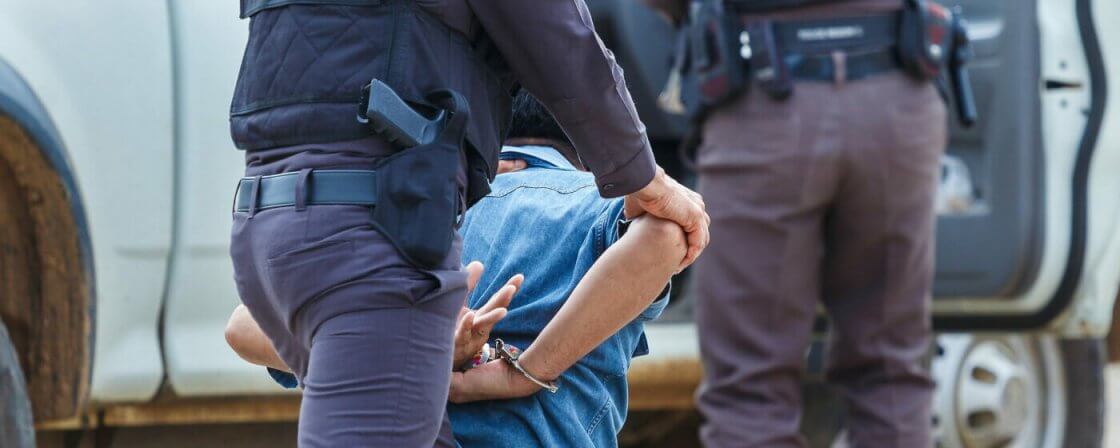Proof of identity
Both police officers and constables can ask you to prove your identity (but constables have slightly less reason to do so by law).
You typically prove your identity by showing your ID card or other proof of identity.
It’s important to know that police officers (and officers) can only ask you to prove your identity in cases defined by law. The officer should also tell you the reason himself (or at least when you ask him). It happens that you will get a standardised answer that you match the description of the wanted or missing person, but in this case, supplement the question with the name of the person. The reason has to be really specific.
Are you solving a similar problem?
Have you been in conflict with municipal or state police?
Have you had a conflict with a municipal or state police officer and believe the officer exceeded his or her authority? We will be happy to help you. Describe your situation to us and our experts will provide you with a legal opinion within 48 hours.
I want legal advice
- When you order, you know what you will get and how much it will cost.
- We handle everything online or in person at one of our 6 offices.
- We handle 8 out of 10 requests within 2 working days.
- We have specialists for every field of law.
Typically, a police officer may ask you to prove your identity in the following cases:
- you are suspected of committing a felony or misdemeanour,
- you are required to give an explanation,
- you match the description of a wanted or missing person,
- at the request of another person if that person has a legal interest in establishing your identity,
- if you report a suspected crime or offence,
- you are in the vicinity of the scene of a crime or offence, fire or other emergency,
- you are entering a building or premises protected by the police or a place where a police officer is prohibited from entering, or if you are leaving such a building, premises or place,
- a police officer is performing another task and proof of your identity is necessary to protect the safety of persons and property, public order or to prevent crime.
The first five points of the above list are the same as the powers of a police officer. In addition, the officer may ask you to prove your identity if he/she is carrying out an act against you in order to perform the tasks of the municipal police,
If you refuse (or are unable) to provide identification, the officer (and the constable) may take you to the police station. However, being taken to the police station should be a last resort if you do not have your ID card with you. A citizen is obliged to have an ID card, but unlike in the past, the law no longer requires you to carry it at all times. If you do not have it on your person, this is not in itself an offence. A student ID card, driving licence, etc. can also suffice as proof of identity. In some cases, police officers will be satisfied with just another person’s identification.
Police officers (and officers) may ask for personal and material assistance (for example, the provision of a car) when they need it to carry out a specific task. You should provide assistance unless you are prevented from doing so by another legal obligation or unless you are putting yourself or your loved ones at risk.
Submission of explanations
The power to request an explanation can be used by police officers when they need to obtain or clarify information relevant to:
- detecting the crime or offence and its perpetrator,
- locating a wanted or missing person or thing,
- preparing and implementing measures to ensure the safety of a person who is protected by the police.
In the case of the municipal police, such reasons are that the information is important for the detection of an offence and its perpetrator or for establishing the true state of affairs.
In those situations, you have a duty to cooperate with the police officers and tell them the information they request. You may refuse to explain if:
- you are prevented from doing so by a state-recognised obligation of confidentiality which you have not been released from; or
- your statement could lead to prosecution or punishment for an offence against yourself or a person close to you.
If you are asked to do so, you must appear at the police station at the appointed time or excuse yourself in advance for objective reasons. If you refuse to give evidence, you can say so either in person when you are summoned or as part of your apology. In this case, the police or officers should not summon you again.
However, if you fail to appear to give an explanation without an excuse, you could also be taken to court.
Interrogation
An interrogation can take a very similar course to giving an explanation, but there is one major difference, as the interrogation is already part of the criminal proceedings. So while giving an explanation means that it is being investigated whether a criminal offence may have been committed, an interrogation indicates that criminal or misdemeanour proceedings have already been initiated. The police then summons directly the witnesses to the event or the accused. The interrogation is governed by criminal law and the municipal police may not be involved in any way.
As part of the interrogation:
- The police officer will obtain your personal information and advise you of your rights, including the right to remain silent. As well as the consequences of giving false testimony.
- He will then start asking you questions. He will then ask you questions and record your answers in a report. There will then be time for follow-up questions about what you have said.
- Finally, you read the report and, if you agree with it, sign it. If necessary, have it edited or write down (have it written down) the reasons why you refused to sign. Never sign something you do not agree with.
- You have the right to have a lawyer present when you are questioned. You may refuse to testify until they arrive.
Collateral
Seizing a person means restricting their personal liberty in more serious cases. Also, only a police officer has this power, not a constable (a constable only has the power to take a person to the police). In particular, the police have the power to seize a person:
- who, by his/her actions, poses an imminent threat to his/her own life or to the life or health of other persons or to property,
- deliberately pollutes or damages property in a police building or verbally abuses a police officer or another person,
- has escaped from the execution of a prison sentence, from the execution of protective treatment, institutional education, precautionary measures or protective education or from protective custody,
- has resisted or attempted to escape when being brought before the police,
- has been caught in the act which has the characteristics of an offence, if there is a reasonable apprehension that he or she will continue the unlawful act or obstruct the proper clarification of the matter,
- is a minor and it is necessary to return him or her to his or her legal guardian.
If the grounds for detention are not met, the person must be released within 24 hours of the time of the restriction of personal liberty.
If the detainee is suspected by the police of a criminal offence and at the same time there are grounds for detention (continuation of criminal activity, escape or obstruction of the clarification of criminal activity), then personal liberty may be restricted for up to 48 hours from the start of detention.
Personal search
A police officer may only search your person if the law allows him to do so. He may do so, for example:
- before putting you in a cell – to check that you are not carrying a weapon or other dangerous item – in this case the search is automatic,
- if your personal liberty is otherwise to be restricted or if police action is taken against you,
- if he or she has reasonable grounds to suspect that you are carrying an item relevant to criminal proceedings,
- if police action is directed against you and there is a risk that you will resist and there is a suspicion that you are carrying a weapon,
- if it ensures the safety of a protected person.
Only a person of the same sex as you can carry out a body search. He or she may make a physical inspection of your body and clothing or “merely” observe you, including your exposed body, and may ask you to make a movement that makes it obvious that you are not carrying a weapon or other dangerous item. A body search also includes a search of your clothing and belongings that you are currently carrying. The officer will make an official record of the search. If possible, the search should be carried out in the most gentle way possible (principle of proportionality)
Summary
In various situations, a police officer has broad powers to require proof of identity, to summon a person to give an explanation, to conduct a body search or, in extreme cases, to bring a person to the police station. Nevertheless, he must carry out all these acts in accordance with the law, sparingly and only when necessary. The citizen has the right to be informed of the reasons for the intervention, to protect his procedural rights and, if necessary, to request a review of the police procedure. Knowing exactly what a police officer can demand – and where it is appropriate to defend against unreasonable interference – is the basis of a proper defence.




